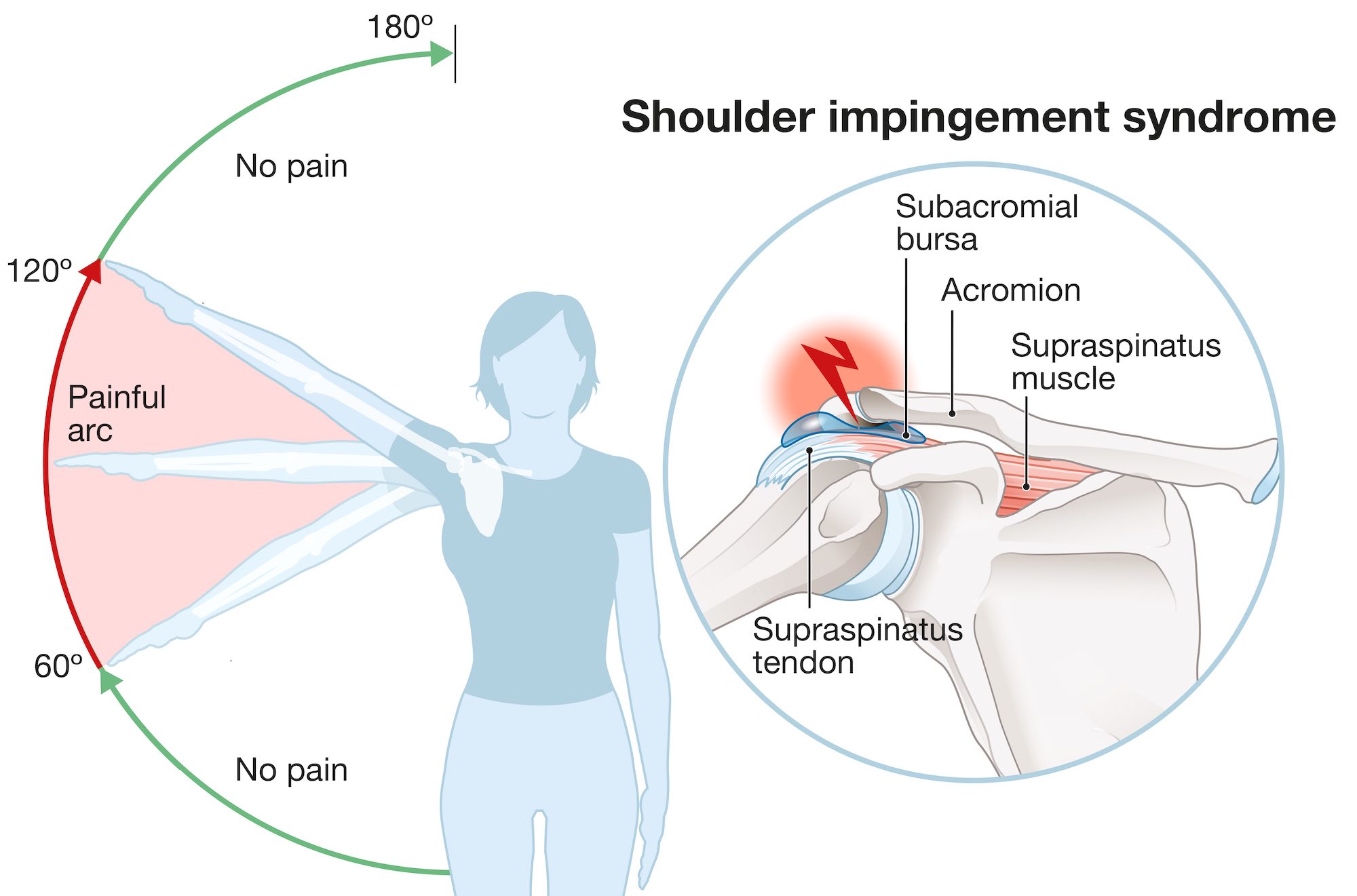Do you experience shoulder pain that comes and goes? You may be suffering from shoulder impingement syndrome. This condition is caused by the shoulder blade not moving properly, which can lead to pain and inflammation.
In this blog post, I will discuss what shoulder impingement syndrome is, the causes, treatment options, and prevention tips.
Symptoms of shoulder impingement syndrome

The primary symptoms of shoulder impingement is shoulder pain that is worse when reaching overhead, as well as weakness and loss of range of motion. The pain may come and go at first, but can become more constant over time.
Causes of shoulder impingement syndrome
There are several things that can cause shoulder impingement syndrome. One is repetitive motions of the arm, such as those often seen in athletes or people who work in manual labor. Another is poor posture, which can put extra strain on the shoulder.
Treatment for shoulder impingement syndrome
If you are experiencing shoulder pain, it is important to consult with your doctor to rule out other potential causes such as a rotator cuff tear. Once shoulder impingement syndrome has been diagnosed, there are several treatment options available.
These include physical therapy, corticosteroid injections, PRP injections, and surgery.
Physical therapy is often the first line of treatment and can be very effective in reducing shoulder pain and improving range of motion.
Surgery is sometimes necessary if the condition does not improve with nonsurgical treatments.
Prevention tips for shoulder impingement syndrome
There are also several things you can do to prevent shoulder impingement syndrome from occurring or recurring. These include:
- Take breaks often if you are doing repetitive motions with your arms
- Be aware of your posture and try to maintain good alignment
- Avoid overhead motions that can irritate the shoulder
- Strengthen the muscles around the shoulder
If you think you may be suffering from shoulder impingement syndrome, you’ll want to visit a shoulder specialist. It is a common condition, and most individuals with shoulder impingement syndrome can recover and resume their regular activities if they get the appropriate treatment.





